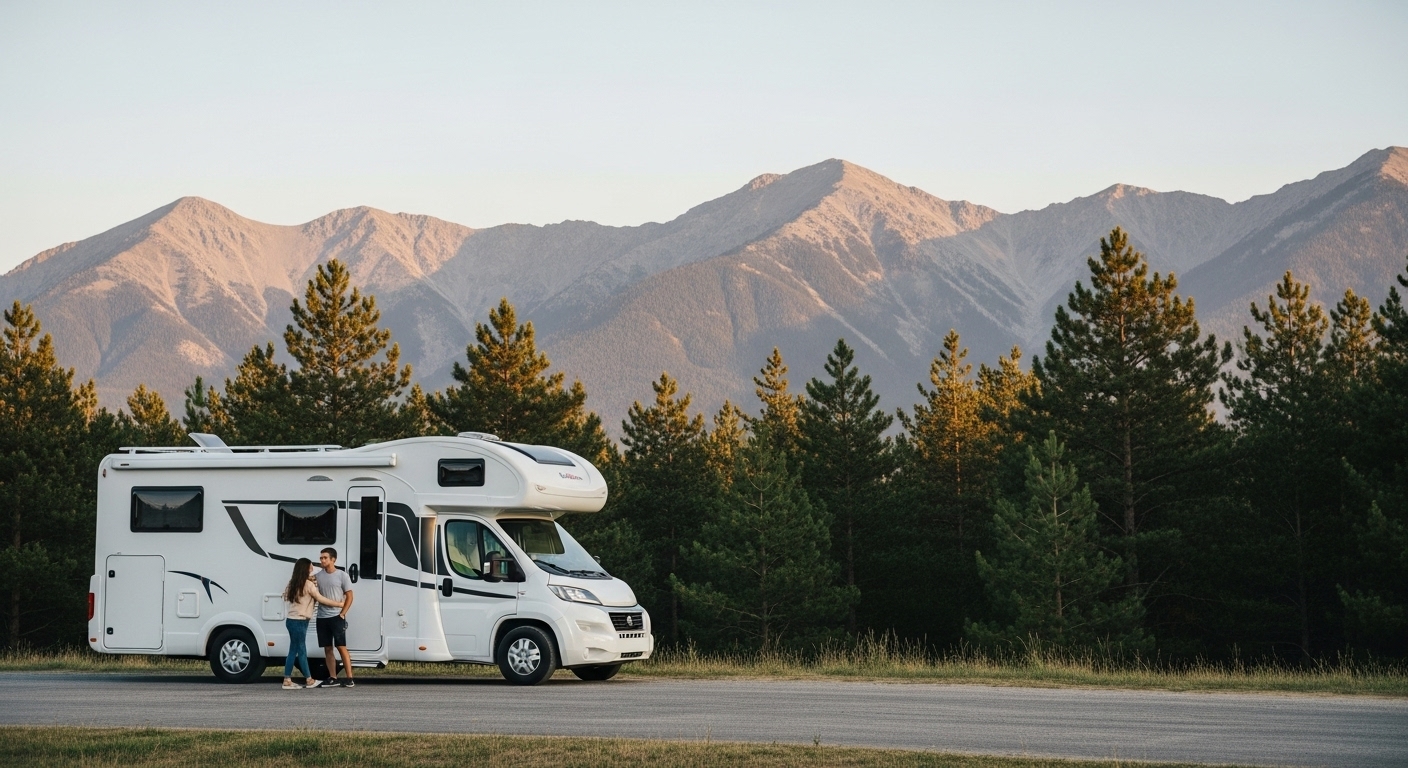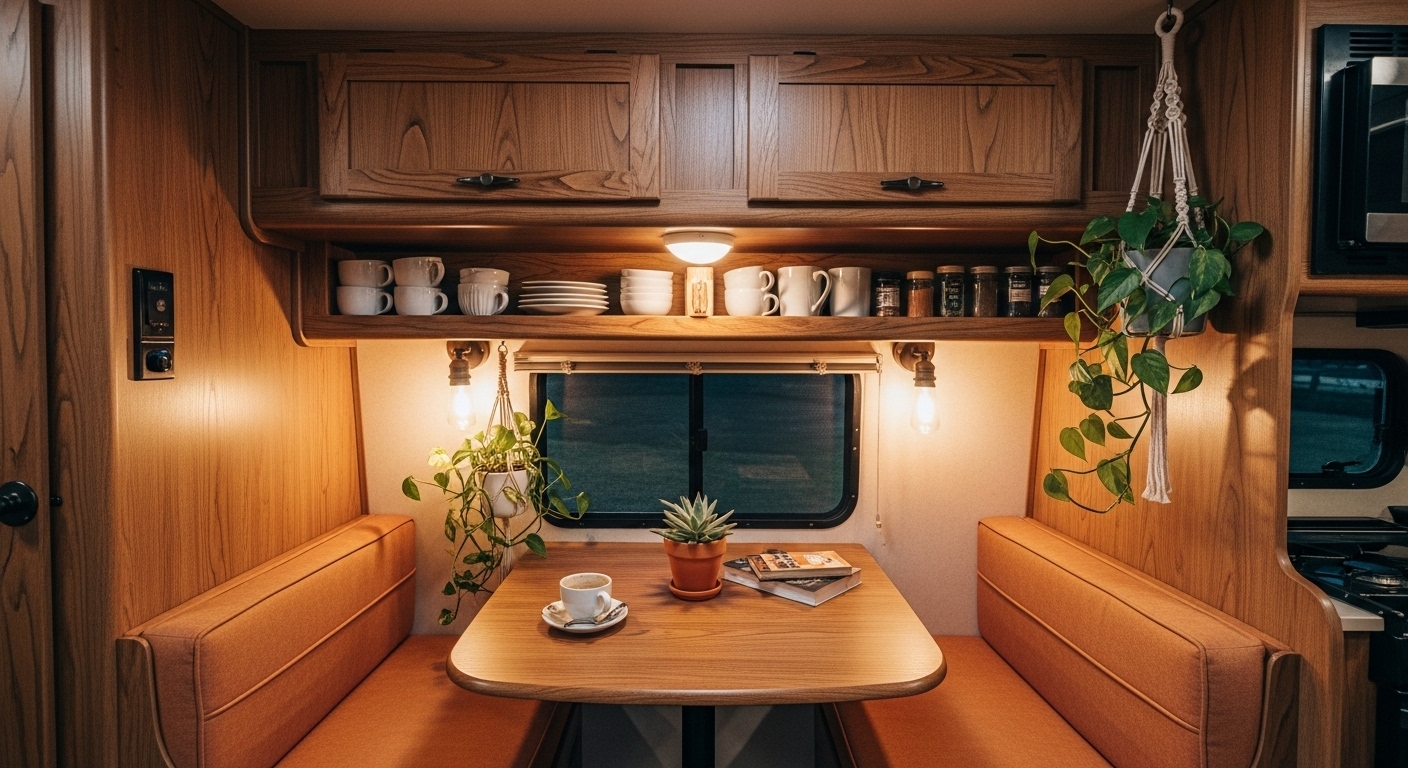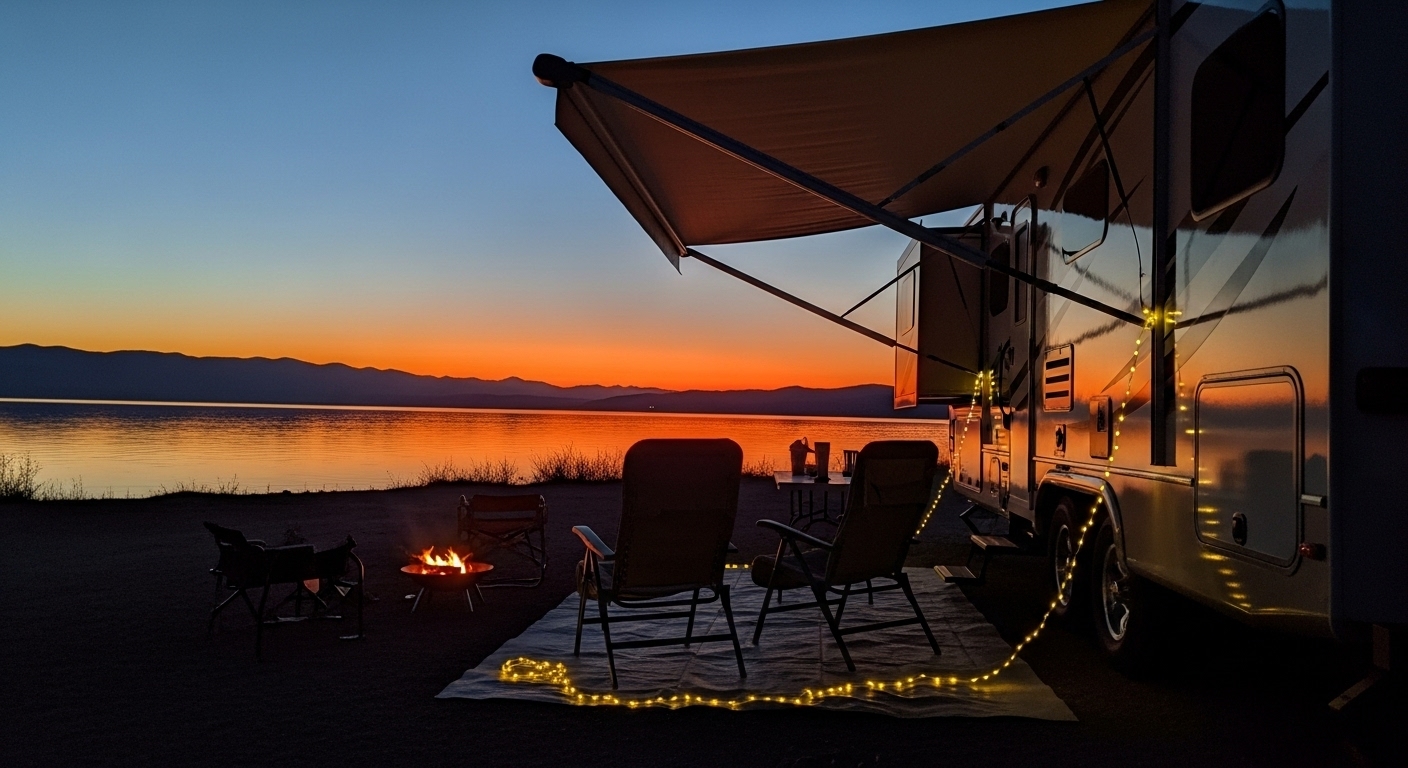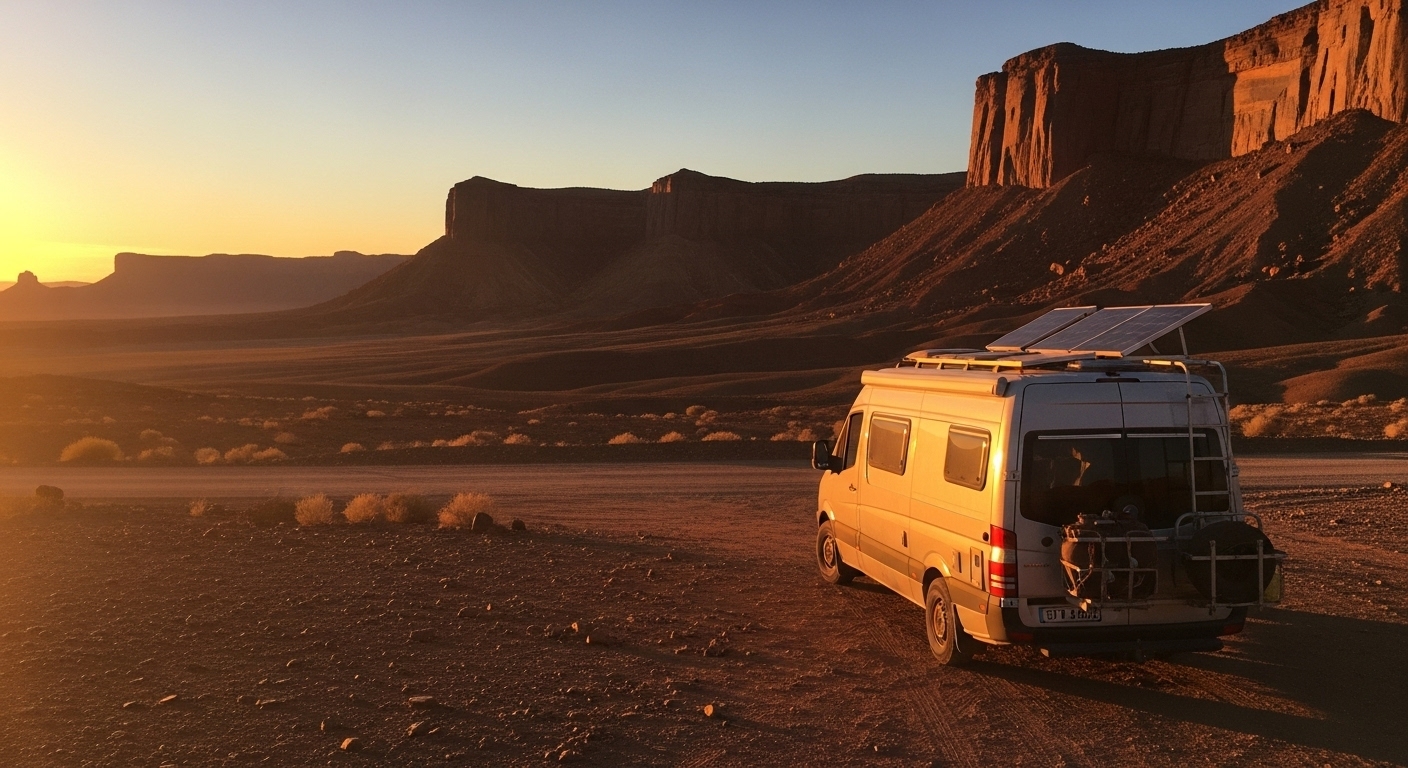
Complete Guide to RV Living for Beginners: Everything You Need to Know
Embarking on the RV lifestyle is an exciting adventure that promises freedom, flexibility, and unforgettable experiences. Whether you're dreaming of full-time van life or planning extended road trips, this comprehensive guide will help you navigate the essentials of RV living and set you up for success on the open road.
Understanding the RV Lifestyle: Is It Right for You?
Before diving into RV living, it's crucial to understand what this lifestyle entails. RV living isn't just about traveling—it's a complete shift in how you approach daily life, work, and relationships. Full-time RVers often cite freedom and adventure as their primary motivations, but the lifestyle also requires adaptability, minimalism, and a willingness to embrace uncertainty.
Consider your goals: Are you looking to travel full-time, work remotely while exploring new places, or simply enjoy weekend getaways? Your answer will help determine the type of RV you need and how to prepare for your journey. Many beginners start with shorter trips to test the waters before committing to full-time RV living.

Choosing the Right RV: Types and Considerations
The RV market offers numerous options, each with unique advantages and drawbacks. Understanding the different types will help you make an informed decision:
Class A Motorhomes
These are the largest and most luxurious RVs, resembling buses in appearance. Class A motorhomes typically range from 26 to 45 feet in length and offer spacious living areas, full kitchens, and multiple slide-outs. They're ideal for full-timers who prioritize comfort and space, though they come with higher costs for purchase, maintenance, and fuel.
Class B Motorhomes (Camper Vans)
Built on van chassis, Class B RVs are the smallest motorized option, usually 17-24 feet long. They're perfect for solo travelers or couples who value maneuverability and fuel efficiency. While space is limited, modern Class B RVs maximize every inch with clever storage solutions and convertible furniture.
Class C Motorhomes
These mid-sized RVs sit between Class A and B in terms of size and amenities. Built on truck or van chassis, they feature a distinctive cab-over sleeping area and typically range from 20-33 feet. Class C RVs offer a good balance of space, drivability, and cost, making them popular among families.
Travel Trailers and Fifth Wheels
These towable RVs require a separate towing vehicle but offer flexibility—you can set up camp and still have transportation. Travel trailers vary widely in size (12-35 feet), while fifth wheels (typically 25-40 feet) offer more space and stability. Both options are generally more affordable than motorhomes and easier to maintain.
Essential Systems and How They Work
Understanding your RV's systems is crucial for successful living on the road. Here are the key systems you'll need to master:
Electrical System
RVs operate on both 120V AC (shore power) and 12V DC (battery power). Your RV likely has a converter/charger that converts shore power to charge your batteries while also powering 12V appliances. Solar panels are an increasingly popular addition, providing renewable energy and reducing dependence on campground hookups.
Plumbing System
RVs have three water tanks: fresh water (drinking and washing), gray water (sink and shower drainage), and black water (toilet waste). Regular maintenance, including sanitizing fresh water tanks and properly disposing of waste, is essential. Most RVers invest in a quality water pressure regulator and filter to protect their plumbing system.
Propane System
Propane powers many RV appliances, including the refrigerator, stove, water heater, and furnace. Understanding how to safely operate and monitor your propane system is critical. Regular inspections and proper ventilation are non-negotiable safety measures.

Budgeting for RV Life: Costs to Consider
Creating a realistic budget is essential for sustainable RV living. Beyond the initial RV purchase, consider these ongoing expenses:
Fixed Costs
- Insurance: RV insurance typically costs $1,000-3,000 annually, depending on your RV type and coverage.
- Registration and Taxes: Annual registration fees vary by state, ranging from $50 to several hundred dollars.
- Storage: If you're not full-timing, storage can cost $50-500 monthly depending on location and facility type.
Variable Costs
- Campground Fees: Rates vary widely, from free boondocking to $80+ per night at resort-style RV parks.
- Fuel: Expect 6-12 MPG for motorhomes, depending on class and size.
- Maintenance and Repairs: Budget 1-3% of your RV's value annually for maintenance.
- Propane, Electricity, and Supplies: Plan for $100-300 monthly.
Finding Places to Stay: Camping Options
One of the joys of RV living is the variety of camping options available:
RV Parks and Campgrounds
These established facilities offer full hookups (water, electric, sewer), amenities like WiFi and laundry, and community atmosphere. Prices range from $30-80 per night. Membership programs like Thousand Trails or Passport America can significantly reduce costs for frequent campers.
Boondocking (Dry Camping)
Free camping on public lands or through programs like Harvest Hosts offers ultimate freedom and cost savings. However, you'll need self-sufficient systems (solar, large water tanks) and must practice Leave No Trace principles.
State and National Parks
These parks offer stunning locations at reasonable prices ($20-50 per night). Many have size restrictions, so check ahead if you have a larger rig. Annual passes can provide excellent value for frequent visitors.
Daily Living: Practical Tips for Success
Embrace Minimalism
Space is your most precious commodity in an RV. Adopt a "one in, one out" rule for possessions. Choose multi-purpose items and regularly declutter. Many successful RVers find that living with less actually enhances their quality of life.
Establish Routines
Creating daily routines helps maintain normalcy in a constantly changing environment. This might include morning coffee rituals, designated workspaces for remote work, or evening walks to explore new areas.
Stay Connected
Reliable internet is crucial for remote workers and staying in touch with loved ones. Invest in a quality cellular data plan, consider a WiFi extender, and research connectivity before booking campsites. Many RVers use multiple carriers for redundancy.
Maintain Your RV
Regular maintenance prevents costly repairs and ensures safety. Create a maintenance schedule that includes tire pressure checks, fluid levels, roof inspections, and system tests. Learn basic repairs—YouTube is an invaluable resource for DIY RVers.
Building Community on the Road
Contrary to what some might think, RV living doesn't mean isolation. The RV community is incredibly welcoming and supportive. Join online forums, attend RV rallies, and don't hesitate to chat with fellow campers. Many lifelong friendships are formed around campfires and shared adventures.
Social media groups dedicated to RV living offer advice, route recommendations, and opportunities to meet up with other travelers. Apps like RV Life and Campendium help you find camping spots and connect with the community.
Common Challenges and How to Overcome Them
Feeling Claustrophobic
Small space living can be challenging. Combat this by spending time outdoors, choosing campsites with scenic views, and ensuring your RV has good lighting and ventilation. Regular exercise and exploring new areas help prevent cabin fever.
Relationship Stress
Living in close quarters tests any relationship. Establish personal space and alone time, communicate openly about needs and frustrations, and work as a team on daily tasks. Many couples find that RV living actually strengthens their bond.
Work-Life Balance
For remote workers, setting boundaries is crucial. Designate a workspace, establish work hours, and resist the temptation to work constantly. Remember that the goal is to enjoy the journey, not just survive it.
Final Thoughts: Preparing for Your RV Adventure
Starting your RV journey is both exciting and daunting. Begin with thorough research, connect with experienced RVers, and start small—perhaps with a rental or short trip—before making major commitments. Remember that everyone's RV experience is unique; what works for others might not work for you, and that's perfectly fine.
The beauty of RV living lies in its flexibility and freedom. You have the power to design a lifestyle that aligns with your values, interests, and goals. Whether you're seeking adventure, simplicity, or a way to explore the country, RV living offers endless possibilities.
As you embark on this journey, stay curious, remain adaptable, and embrace the learning curve. The road ahead is full of incredible experiences, breathtaking landscapes, and meaningful connections. Welcome to the RV community—your adventure awaits!
